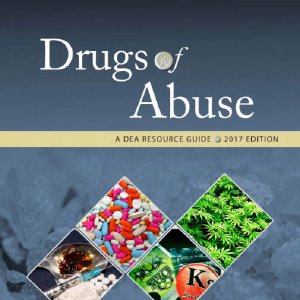Preventing Drug Use in the Home

One could argue that the environment one grows up in and one’s life experiences are two of the most critical factors in whether or not someone uses drugs to cope with life struggles. As drug addiction grows and spreads across America, more parents are looking to their households, wondering when the critical health epidemic that is addiction will enter their own home.
As one’s environment and upbringing play such a significant role in one’s likelihood of experimenting with substances, it follows logically that parents can play a huge role in helping to prevent their kids from ever experimenting with drugs.
Top Tips for Preventing Drug Use at Home
One of the critical factors when it comes to 21st-century drug problems is that drugs are more available to young people than they have ever been before. Accessibility, coupled with a reduction in perceived risk regarding drug use (especially regarding cannabis and prescription drugs), has led young people to be more inclined to experiment with mind-altering substances.
For parents, preventing their kids from ever using drugs and alcohol should be the priority. It is much easier to prevent someone from ever using drugs than it is to get them off of drugs once they are hooked. Parents have a significant impact on their children’s decisions, even if it doesn’t always feel that way. Parents must do everything they can to stop drug use before it ever happens.
Drug abuse prevention begins when parents learn how to talk with their kids about difficult topics. Here are ten ideas and principles on how to do just that:
- Parents are powerful. Through an individual’s childhood and adolescence, there is likely no one else they spend more time with than their parents and other siblings. Children watch their parents’ every move, and they are paying attention and learning as they watch. That’s why parents are powerful. Parents can and do have a monumental impact on their kids.
- Parents should recognize their power and set a good example with it. Parents should never drink or use drugs in front of their kids (or at all for that matter). They should set an example of what they want their kids to be like. Parents must set the standard by themselves, refraining from using such substances if parents want their kids to avoid drugs and alcohol, tobacco, vapes, and other mind-altering substances.
- Parents should talk, but they should also listen. More importantly than talking to kids about drugs and alcohol, tobacco, vaping, pharmaceuticals, etc., is that parents listen. When parents listen to their kids about difficult subjects, they show their kids that they can be trusted. That they are someone who it is safe to talk to.
- Learn the facts. Unless they have had their own experiences with drugs, it’s unlikely that most parents will even know that much about drugs. Because of that, parents should take it upon themselves to get educated. Explaining to one’s kids all the reasons why they would not want to use drugs is not that easy to do when the one doing the explaining does not know much about drugs.
- Clarity and consistency are essential. Children seek out and appreciate boundaries. Though they may sometimes rebel against them, children find comfort and solace in having a structure in their lives and having rules to follow and promises to keep. That’s why parents need to be very clear on their no drug-use policies. Parents should not be in any way permissible about any degree of drug use or alcohol use.
- Seek to correct misinformation. One of a young person’s first exposures to drug use will likely occur because of peer pressure. Peer pressure is the phenomenon of others in one’s “friend” group vocally and suggestively convincing them to do something they don’t necessarily want to do. One way that instigators make peer pressure work to their advantage is by telling lies about drugs, usually by making the drug sound wonderful or downplaying its harmful effects. Parents can help protect their kids from peer pressure by telling the truth about drugs and making sure that their kids understand the real risks at hand with drug experimentation.
- Avoid material that glorifies drug use. That can include TV programs, movies, video games, music, and social media posts that glamorize alcohol, tobacco, and drugs. Furthermore, parents should discuss the harmful effect that the glamorization of drugs and alcohol has on society.
- Spend time together. A family that spends time together is a family that can stay sober together. Quality time spent together has a direct correlation to fewer chances of adolescent or young adult substance abuse within the family. Even scientific data shows that teenagers who eat dinner with their family are less likely to drink alcohol, smoke tobacco, or use drugs.
- Help children see what a “poor” choice and a “smart” choice is. It’s not the end of the world if a teenager or young adult son or daughter makes poor choices. Parents should use a mix of praise and criticism to correct a child’s behavior without actually saying that the individual is bad. Parents should use positive language as much as possible, only resorting to criticism or negative language as necessary to get the child to see clearly when they have done something wrong.
- Help children make good choices in their friendships. As mentioned earlier, peer pressure is one of the critical leading causes of drug experimentation during one’s youth. However, peer pressure can be avoided by parents merely being a bit more intentional and wary of how their son or daughter is picking their friends. A good sense of self-worth and knowing what is right and wrong will help the child make better decisions and say “No!” to drugs and other risky, immoral behaviors/decisions in the future.
Addiction Treatment is the Effective Solution, Should Prevention Fail
Parents should do everything they can do to prevent drug abuse among their adolescent or young adult children. However, if that plan does not work, addiction treatment centers can help people find and address the underlying reasons why such individuals turned to drugs and alcohol in the first place.
Don’t let your son or daughter succumb to an addiction to drugs or alcohol. Contact Narconon today to get your loved one help.
Sources:
- https://www.healthychildren.org/English/ages-stages/teen/substance-abuse/Pages/Drug-Abuse-Prevention-Starts-with-Parents.aspx
- https://thenationshealth.aphapublications.org/content/41/9/E46

